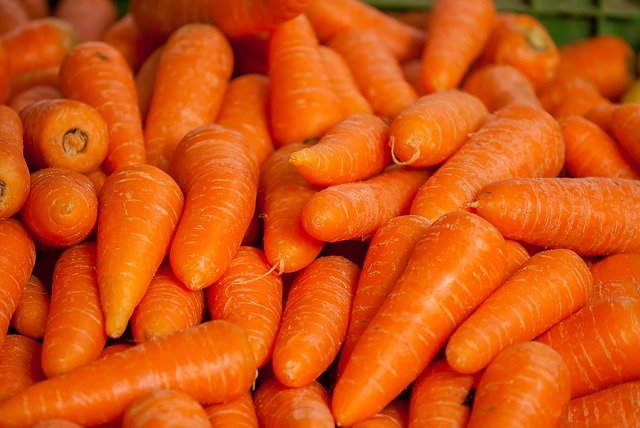
-
An inter-agency task force will be created to investigate the reported sale of smuggled fresh carrots in local markets
-
The inter-agency task force will be composed of the Department of Agriculture, Department of Trade and Industry, Bureau of Customs, and Bureau of Internal Revenue
-
Local cooperatives earlier reported that smuggled carrots from China have proliferated and are being sold at lower prices in several key markets, particularly in Divisoria, Manila
An inter-agency task force will be created to investigate the reported sale of smuggled fresh carrots in the local market, according to the Department of Agriculture (DA).
The inter-agency task force will be composed of the DA, Department of Trade and Industry, Bureau of Customs (BOC), and Bureau of Internal Revenue, DA assistant secretary Noel Reyes said in a press briefing on September 27.
Reyes surmised that the fresh carrots can only be smuggled because DA does not issue permits for importation of fresh vegetables. He noted the Bureau of Plant Industry (BPI) only grants import permits for frozen mixed or processed vegetables for use by embassies and in hotels.
The Highland Vegetable Multipurpose Cooperative (HVMC) and Benguet Farmers Cooperative (BFC) earlier said they received reports that the smuggled carrots were being sold at lower prices in several key markets nationwide, particularly in Divisoria, Manila. The carrots were suspected to have come from China.
The groups said the spread of smuggled carrots hurts local farmers, who are already reeling from the effects of the pandemic.
Reyes warned against the consumption of smuggled fresh vegetables as the DA cannot assure products were subjected to food safety regulations and are not carrying pests or pesticide residue.
The vegetables will be confiscated and suspects will be charged, Reyes added.
In a separate statement, BOC said it is already coordinating with DA, BPI, and BFC in looking into the alleged smuggling of carrots.
BOC noted that due to the perishable nature of all agricultural shipments, the current first border inspection is limited to opening and closing of reefer containers to avoid spoilage. A second border inspection is conducted inside DA-accredited cold storage warehouses.
To further enhance border security and regulatory measures, BOC said it fully supports DA’s establishment of agricultural commodity examination areas (ACEA) and the strengthened inspection at the second border in the cold storage warehouses.
DA earlier said it will establish in six ports this year the Philippines’ first border inspection (FBI) facilities, or ACEAs, to be used to inspect imported animals, plants, meat, and other farm and fishery products.
READ: Six ports to house DA examination areas for agri imports
The ACEAs will be set up at the Manila International Container Terminal, Manila South Harbor, Cebu, Batangas, Subic, and Davao.
Agriculture Secretary William Dar last May also ordered attached units of DA to implement intensified and stricter first border inspection and control of all imported food items and other agri-fishery related products to ensure optimum food safety levels.




